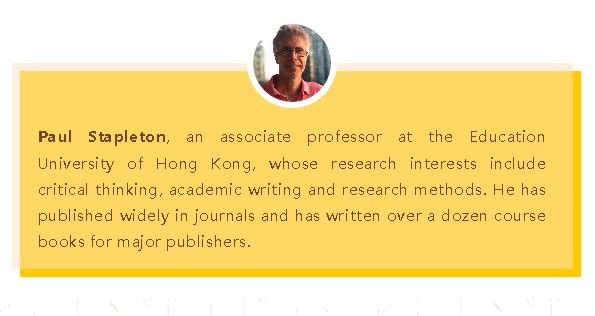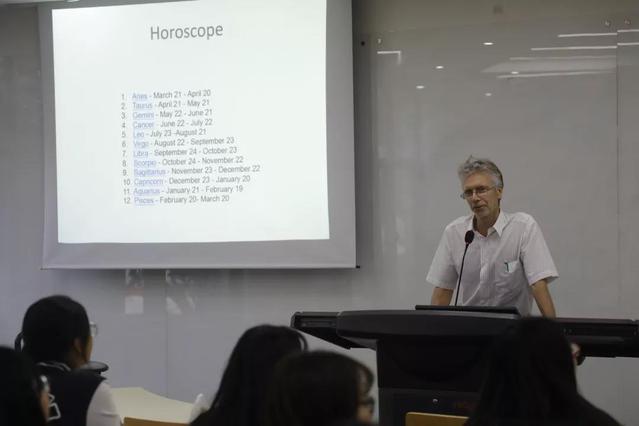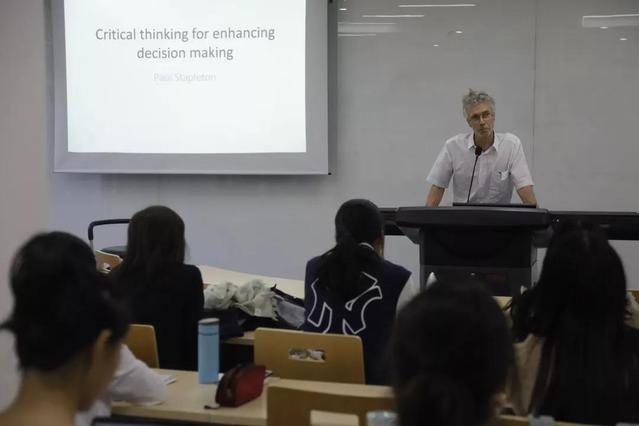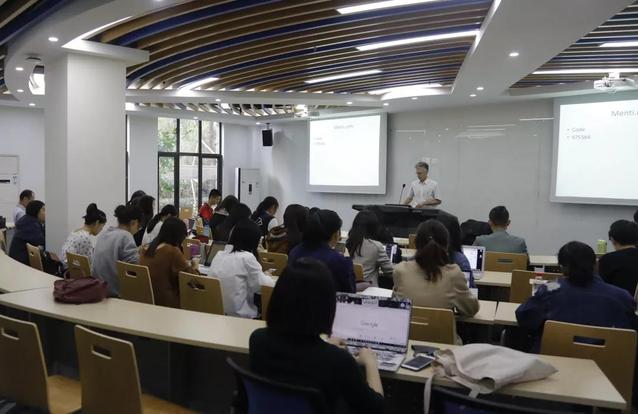
A lecture entitled critical thinking for enhancing decision making was delivered by Paul Stapleton, an associate professor at the Education University of Hong Kong, in the way of a workshop.

Before the start of the lecture, Professor Stapleton provided every one of the audiences with a little piece of horoscopic information that was said to be specifically related to his or her constellation. Then he asked them to vote on the accuracy of the description. Not surprisingly, the horoscopic description seemed quite accurate to most people. What was surprising was that the information given to everyone had actually been all the same, which meant that some other thing must have influenced everybody’s perception.
After this little thought-provoking experiment as an introduction and lead-in, Professor Stapleton then moved on to show some common types of thinking errors and he further analyzed the cause of these errors to be a thinking pattern called availability heuristic. As he points out that bad reasoning is attractive because it allows us to solve problems simply, in another word, our brain preferred the most available causes and solutions. For example, people take vitamin C and recover from a cold, so they tend to believe that it helps their fight against the illness because it is the most simple and obvious answer, while there has been clear scientific evidence that vitamin C has nothing to do with the cure of a common cold.

In some other cases, people have thinking errors because they tend to remember the dramatic possibilities and forget about relatively not very dramatic ones. In clarification for this viewpoint, the professor used his mother as an example of the old-time nurses who would believe in the thought that hospital admissions rise up in full moon nights. However, the number of patients that came to the hospital on nights when the moon is full didn’t vary a lot from that of other days according to a survey. They just tend to remember more clearly how much work they had on a special full moon night and forget about all the other ordinary nights.

Confirmation bias, which means the inclination to look for evidence that supports your beliefs rather than search for evidences that falsify them, also attribute to bad reasoning. And it would suffice to mention the fortune-teller phenomenon, in which people who go to fortune tellers generally have beliefs in or expectations for them so instead of being a fault picker they tend to find reflection in the fortune tellers’ words despite their many mistakes.
As our thinking can be easily tricked into a wrong path, we need to be cautious and pay attention to our logics. We need to think by baselines rather than instincts. We need to put more faith in science and statistics rather than whatever that first pops into our mind. Only in this way can we enhance our decision making.
文案 | 学术部 董乐
供图 | 宣传部